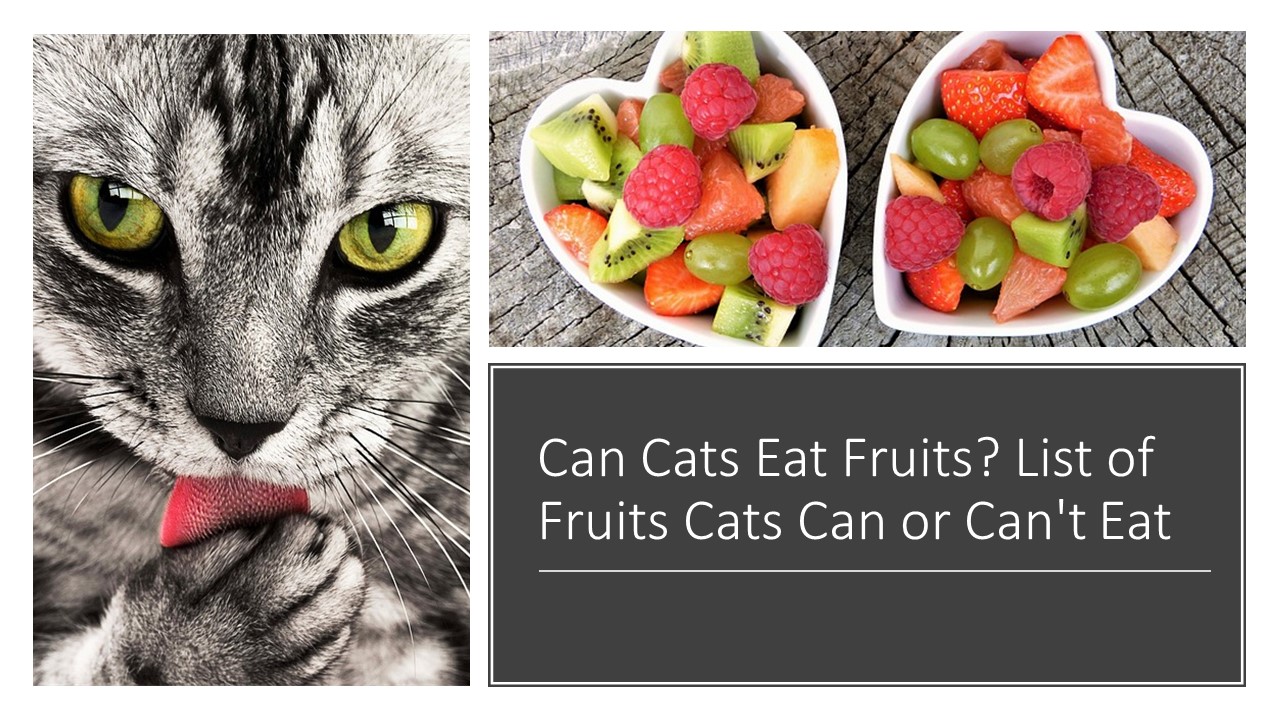Physical Address
304 North Cardinal St.
Dorchester Center, MA 02124
Physical Address
304 North Cardinal St.
Dorchester Center, MA 02124


Yes, cats can eat various fruits as an occasional addition to their diet or as a nutritious snack to help boost vitamin C. Cats typically have no interest in fruit’s sweetness since they lack the taste receptors necessary for it. Cats can, however, consume a variety of fruits in moderation as a treat. They can only eat a small amount because of their digestive processes.
However, some fruits are not suitable for cats and can be toxic as cherries, grapes, and raisins. Because if cats eat grapes and raisins, it can result in severe digestive problems, lethargy, vomiting, diarrhea, and even acute kidney failure. Also, citrus fruits like oranges, lemons, and limes contain acids and elements that might irritate the stomach and produce vomiting, diarrhea, or even depression for cats.
Giving your pet a variety of foods will help you provide good pet care by preventing nutrient deficiencies. because many food varieties provide a variety of nutrients that other dietary groups do not.
While many cats do not prefer diversity in their diets, others get bored of the same food. There are many human foods that cats can and cannot consume, even though the occasional introduction of new meals or healthy treats is beneficial. I have written this useful guide for cat owners on what fruits cats can eat and which fruits they can’t.
The following fruits can be eaten by cats in moderation: the healthiest fruit for cats?
Avoid the following feeding the following fruits to your cat:
Cantaloupe is considered one of the cat’s favorite fruits. This is because the scent that cantaloupes produce mimics the scent of the proteins in meat.
What fruit and food can cats eat? is one of the most often asked queries among pet owners. Checking to see if human foods are suitable for cats is always a good idea, whether you want to offer your feline buddy a little extra treat or you want to be sure they are okay after getting into something they shouldn’t.
The majority of a healthy cat’s nutrition should always come from commercial cat meals that are carefully made to offer nutritional advantages. This is so because cats are obligate carnivores and have extremely specific dietary needs. This indicates that in order to maintain good health, your cat requires a diet that contains at least 70% meat. Cats are particularly vulnerable to severe issues from protein deprivation.
You can periodically add certain human foods to your cat’s diet, but you shouldn’t do it frequently. Also, some fruits should be avoided by cats with specific medical conditions, so it’s always a good idea to consult your veterinarian before introducing any new foods to your pet’s diet.